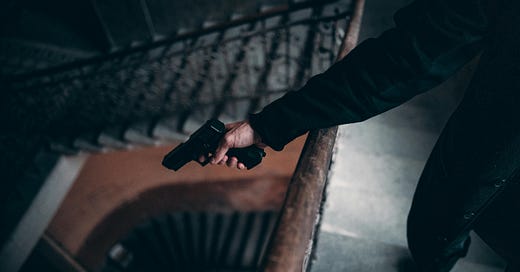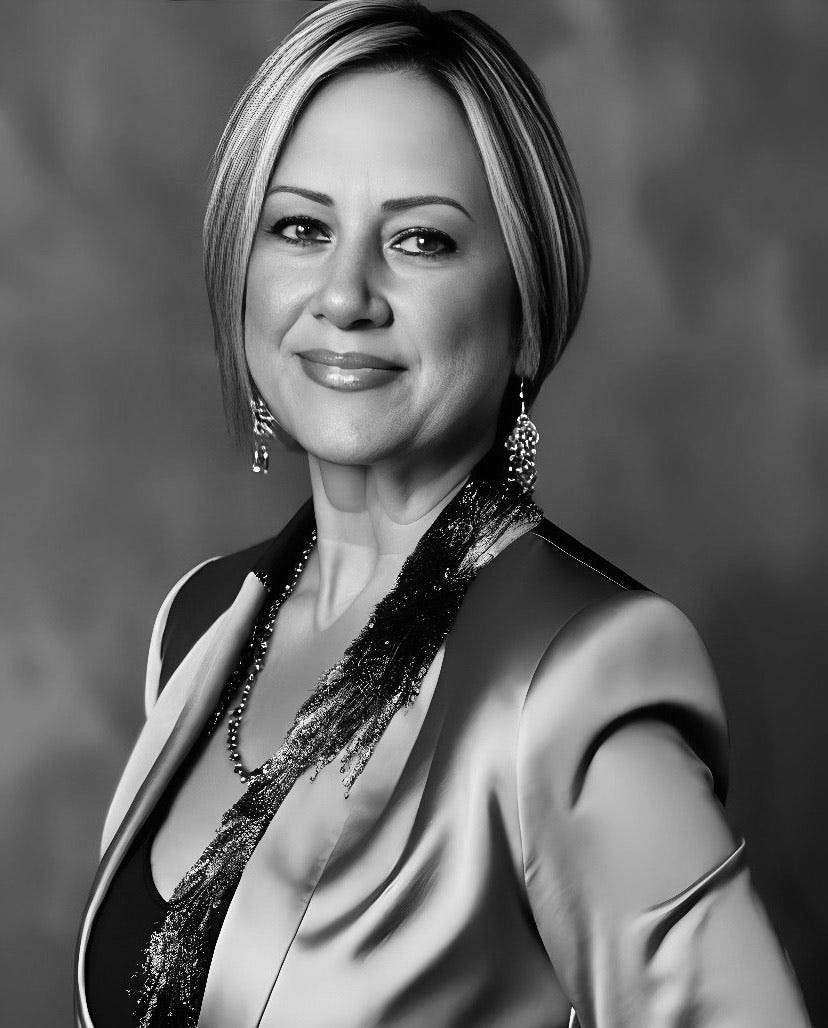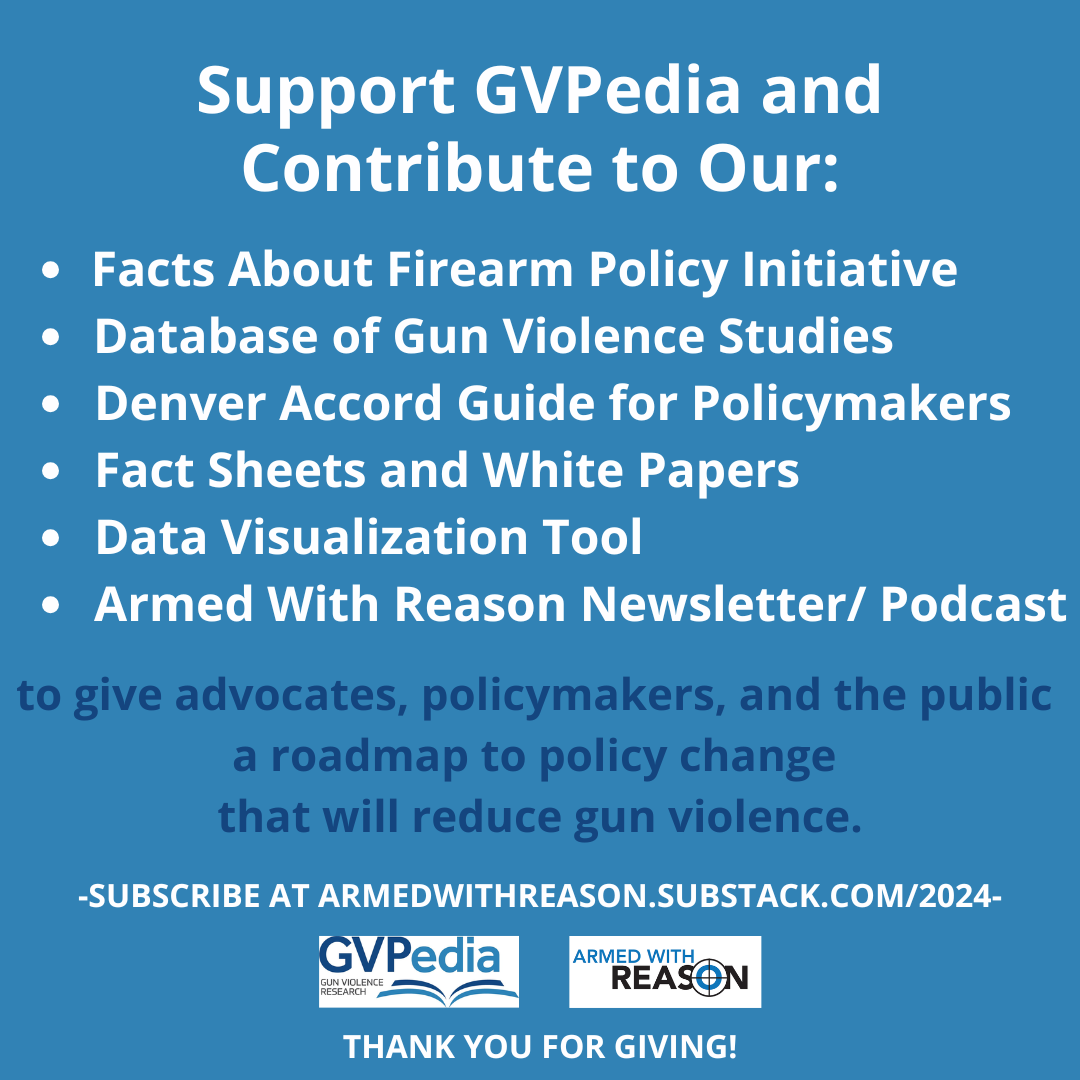Armed Abusers Are a Grave Threat - Mel Gibson Should Not Get His Guns Back
The statistics don’t lie
By: Kate Ranta
The U.S. Department of Justice recently dismissed pardon attorney Elizabeth G. Oyer from her position after she opposed restoring actor Mel Gibson’s firearm rights. Gibson pleaded no contest to misdemeanor battery against his then-girlfriend, Oksana Grigorieva, in 2011 and lost his gun rights as a result of his conviction.
The controversy surrounding his potential reinstatement of firearm ownership raises an urgent question: Should convicted domestic abusers ever regain access to deadly weapons? The answer is an unequivocal no.
And I say this as someone with lived experience. In 2012, my abusive ex-husband ambushed my father and me at my apartment and shot us both twice, in front of his own child — my then 4-year-old son, William.
The Lethal Reality of Male Violence and Firearms
Allowing individuals convicted of domestic violence to regain access to firearms poses a significant risk to the safety of women and children. The statistics don’t lie:
Intimate Partner Homicides: In 2021, approximately 34% of female murder victims were killed by an intimate partner, compared to about 6% of male victims.
Firearms as the Weapon of Choice: In 2019, 66% of women murdered by men were killed with a gun.
Increased Risk with Firearm Access: Abusers with access to firearms are five times more likely to kill their female victims.
These alarming numbers reinforce the danger of allowing abusers to have access to weapons. Domestic violence is already a life-threatening situation for many victims, and firearms exponentially increase the likelihood of deadly outcomes.
Restoration of Gun Rights to Abusers is Dangerous and Irresponsible
Gun restrictions for domestic abusers exist to prevent further violence and death. When courts revoke gun rights it is not a punishment, it is a critical safeguard. Reinstating firearm access to someone with a history of violence, even if the conviction was a misdemeanor, undermines these protections and endangers lives.
The argument that individuals should automatically regain firearm rights after serving their sentence disregards the persistent and cyclical nature of domestic abuse.
Studies show that abusers who commit one act of violence are likely to reoffend, often with escalating severity. The presence of a firearm in these situations can turn what might have been an injury into a fatality.
I also know this firsthand. My ex-husband’s abusive behavior went from emotional, to attempted physical, to attempted murder over the span of nearly three years. It only escalated, and his access to a gun nearly took out three generations of my family. We were lucky he wasn’t successful, but most women and families in a similar situation aren’t so lucky.
The Broader Implications of Mel Gibson’s Case
The debate over whether Mel Gibson should have his guns returned is not just about one man — it is about a larger systemic issue.
If this man with documented abusive behavior and violent outbursts is granted an exception, it sets a dangerous precedent for others with similar convictions. It signals that violence against women isn’t taken as seriously as other offenses that bar individuals from owning firearms.
Moreover, the dismissal of a legal official who opposed Gibson’s reinstatement raises concerns about political and celebrity influence overriding public safety. Laws meant to protect victims should not be flexible for the wealthy or well-connected.
Protect Victims, Not Abusers
Rather than restoring gun rights to convicted abusers, lawmakers and law enforcement agencies should focus on strengthening protections for victims. This includes enforcing existing laws, closing loopholes in background checks, and expanding resources for survivors of domestic violence.
Mel Gibson’s case should serve as a reminder of why firearm restrictions for domestic abusers exist. The statistics are clear — allowing abusers to have guns leads to more deaths.
If we truly value the lives of women and children, we must prioritize their safety over the privileges of those who have already demonstrated their capacity for violence.
Kate Ranta - photo courtesy of author
Kate Ranta is a domestic and gun violence survivor, an advocate against intimate partner violence, and co-author of Killing Kate: A Story of Turning Abuse and Tragedy into Transformation and Triumph.
Top photo by Elijah O'Donnell; via Pexels.







